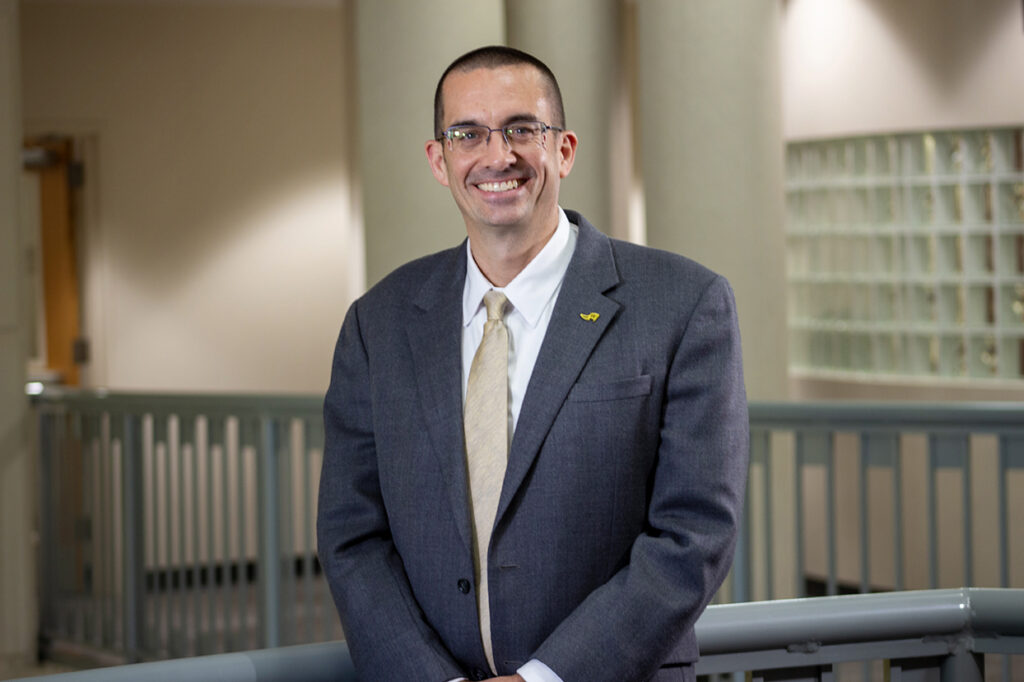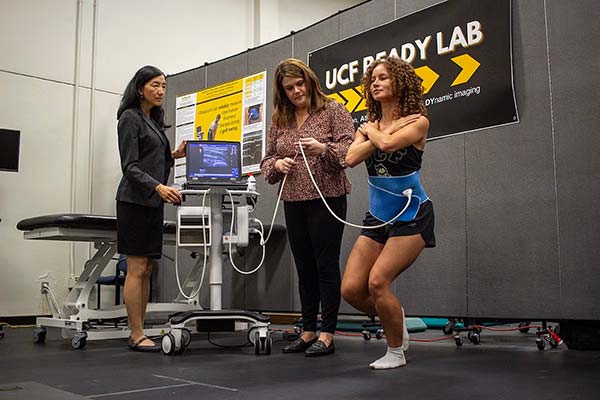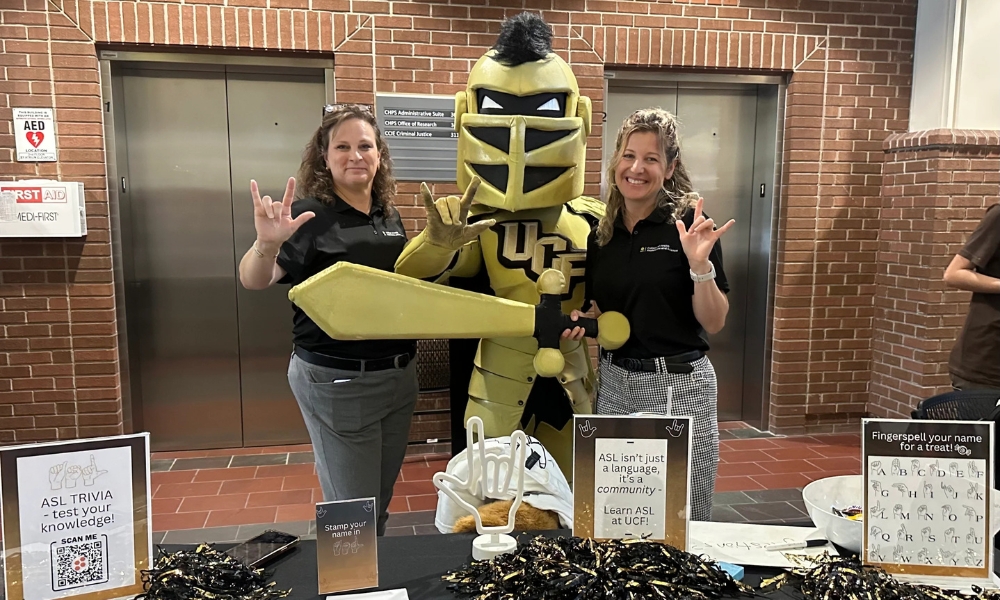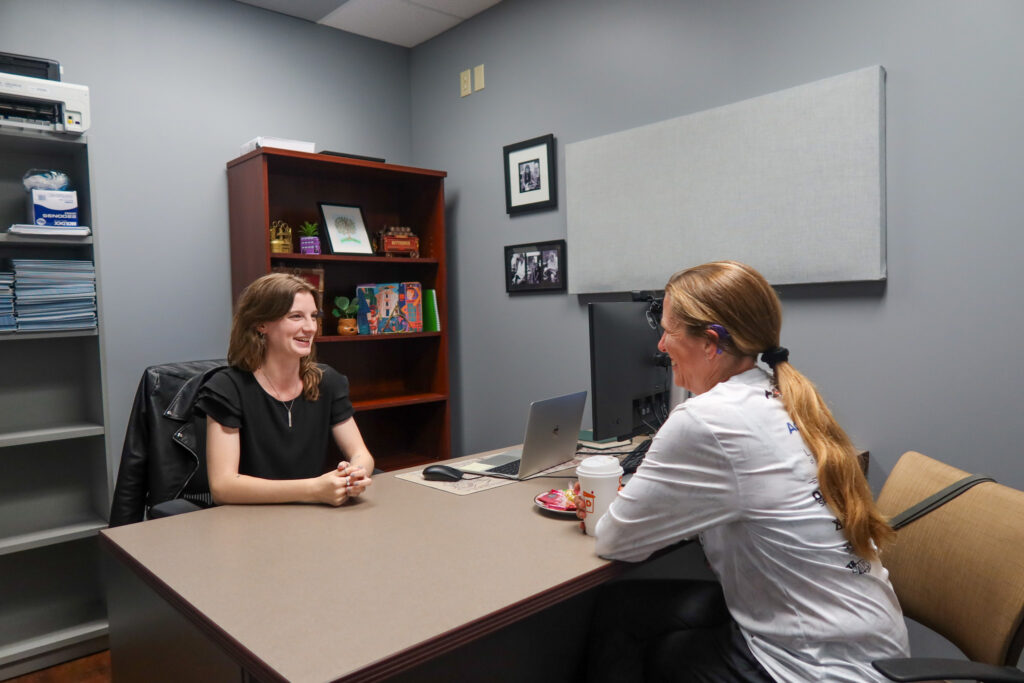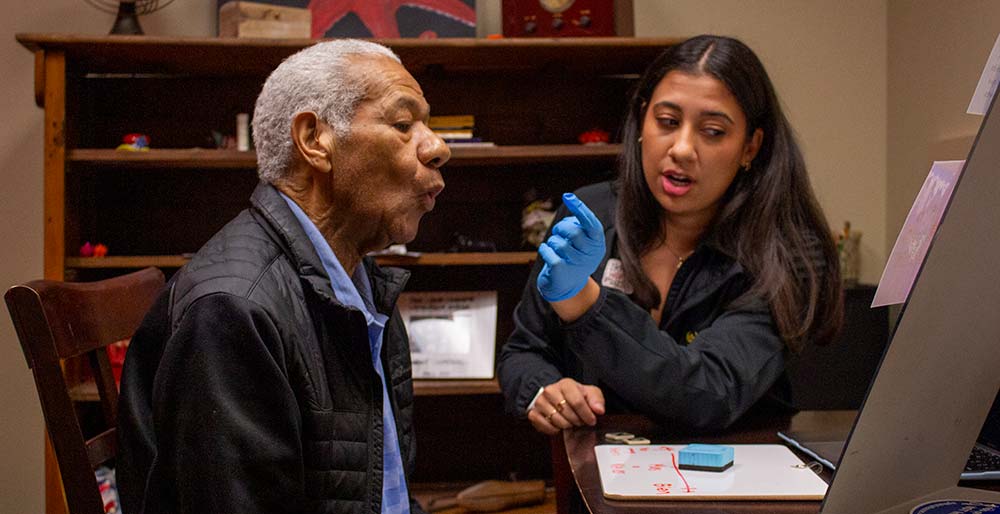Whether it’s solving the world’s biggest problems or investigating the potential of novel discoveries, researchers at UCF are on the edge of scientific breakthroughs that aim to make an impact. Through the Research in 60 Seconds series, student and faculty researchers condense their complex studies into bite-sized summaries so you can know how and why Knights plan to improve our world.
Lakshmi Kollara Sunil, an assistant professor in the School of Communication Sciences and Disorders, is a speech scientist using her expertise to help children born with cleft palate and other craniofacial anomalies.
Kollara was first inspired to study ways to improve treatment options for children born with the common birth defect after going on a cleft palate surgical mission trip to Mexico as a graduate research assistant. Serving at a children’s hospital, she conducted evaluations, provided speech therapy to patients and observed more than 200 surgeries. The experience was a turning point that solidified her interest in anatomy and physiology and inspired her to study craniofacial abnormalities for her doctoral program.
Kollara, who leads the UCF Craniofacial and Speech Imaging Lab, recently completed a study in which she analyzed MRIs and 3D images of children with cleft lip and cleft palate and collaborated with surgeons, radiologists and other healthcare professionals to develop a treatment course tailored for each patient’s individual condition and anatomical structure. Each cleft palate case is highly unique, and if not corrected, can affect speech, eating and social skills. Examining each case with a collaborative team-based approach brings together key experts from diagnosis through treatment and is designed to improve patient outcomes and reduce the potential for additional surgeries.
Kollara’s research specifically addresses children with 22q11.2 deletion syndrome (22qDS), also commonly referred to as DiGeorge syndrome. Patients with this genetic condition often demonstrate speech issues and cleft lip or palate.

